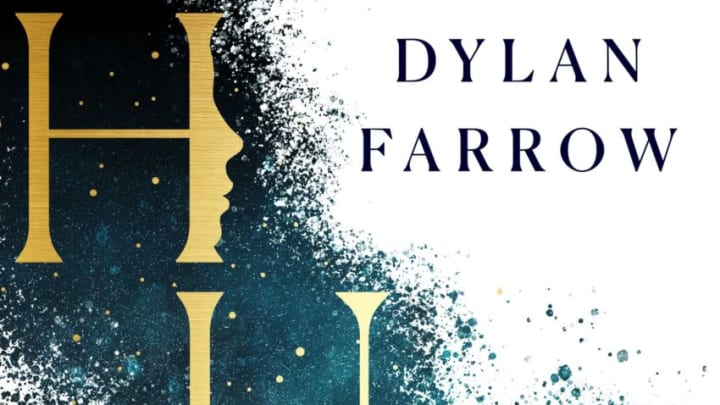Hush sports an intriguing premise about the power of both language and silence but gets dragged down by its one-dimensional slate of characters.
Hush, the debut novel by activist Dylan Farrow is probably not what you expect upon seeing its cover — or realizing who its author is.
A fantasy story about the revelatory magic of language in general – and the power of the truth, specifically, this novel attempts to wrestle with big, intriguing themes: Questions of belief, trust, icons, magic, and systems of order are all offered up at various points in the story.
In the world of Hush, the written word is basically forbidden and even the act of speech is severely restricted thanks to an ink-borne plague known as The Blot. Reading and writing are skills that only Bards – powerful magicians sent around the country to collect tithes, enforce laws, and perform special magic called Tellings – possess. Bards are both revered and feared, and they are possibly the only people in Montane who aren’t living in abject poverty.
The initial concept of this world is a fascinating one, which seems as though it could go in a million different directions, exploring everything from poverty to education. It…doesn’t, but the potential of this universe remains tantalizing throughout.
The story follows seventeen-year-old Shae whose brother succumbed to The Blot several years back and whose mother is murdered under increasingly suspicious circumstances during an annual Bard tithe-gathering visit. Determined to find the truth, Shae journeys to the Bard stronghold High House, where she learns she not only possesses magic herself but is destined to become a Bard.
(Because, of course, she is. Sigh.)
Shae decides to remain at High House in order to learn to control her newfound abilities, which apparently may drive her mad if left to run unchecked. She’s also hopeful her increased access to the Bards and their training academy will help her track down her mother’s killer, and determine why someone cover up her death and make it look like an accident.
Yet, despite the interesting pieces that make up much of its premise, Hush is a novel with a whole that is much less than the sum of its parts.
At first glance, Hush’s magical system of “Tellings” seems interesting enough, a sort of mix of prophecy and basic abilities common to most fantasy stories, like telekinesis. Unfortuantely as the story progresses, things become much muddier and more confusing – suddenly “Tellings” can bring down a building or alter how one sees reality instead of simply make it rain in a land plagued by drought, and Hush itself starts leaning into “Because, magic!” as the reason almost everything happens.
The story is also populated by a string of wooden, deeply basic characters whose development is largely nonexistent and whose actions are almost always predictable.
Heroine Shae is perhaps best served simply because we spend the most time with her, but her crippling naivete eventually becomes laughable rather than compelling. Her insta-attraction to a roguishly handsome Bard literally comes out of nowhere and their sudden closeness is driven almost entirely by plot rather than character needs.
The rest of the novel’s supporting cast is even more paint-by-numbers basic, including a kindhearted shop girl, the handsome neighbor boy with a dark secret, the seemingly trustworthy authority figure who is actually a monster after all, and the overbearing mentor who hates our heroine for no real reason.
Farrow frequently makes the mistake of confusing secrets with character development, and though his novel has some strong, relevant ideas about finding your voice and determining what you believe in the midst of propaganda, but, sadly. most of them don’t go anywhere.
Or, at least, they haven’t yet.
The problems with Hush are all things that can be easily fleshed out in a sequel, and the novel itself leaves our characters in a position that all but promises the second book in the series will be a stronger one. Will that happen? Will have to wait and see.
Hush is available now. Let us know if you add it to your to-read list for Fall!
